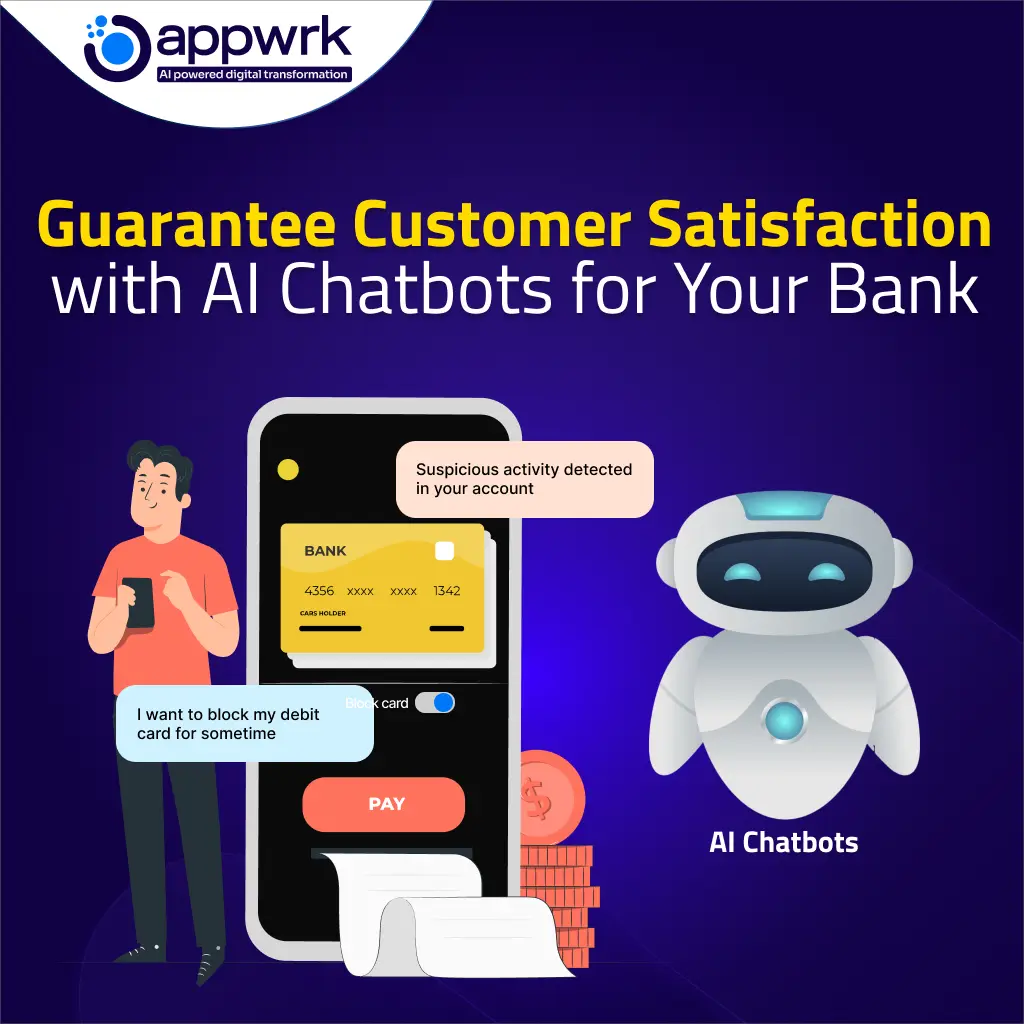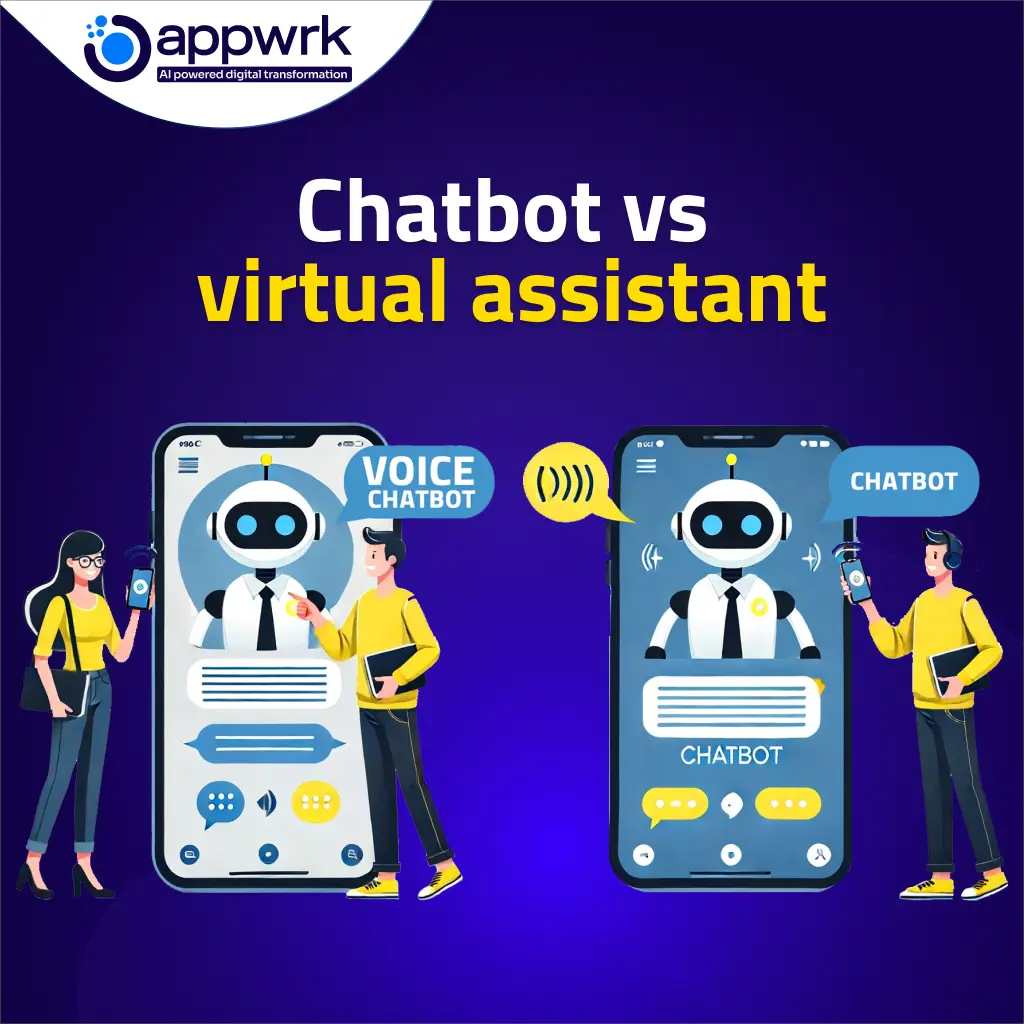AI in Healthcare: Types, Benefits, & Steps to Integrate AI Solution
Artificial Intelligence has been slowly but steadily making its significance felt in almost every nook and cranny of the healthcare industry. In the future, Artificial Intelligence will play a big role in healthcare. It will find diseases we as a human might miss, speed up drug testing, and even allow for things like doing surgeries from far away.
On top of that, AI can go a long way to streamline the day-to-day healthcare-related tasks. Thereby simplifying the jobs of healthcare professionals. This begs the question, How can healthcare organizations leverage this power and make AI an integral part of their daily operations? Well, that is exactly what we will be talking about here.
According to reports from Statista, the global healthcare AI market is expected to be worth almost $188 billion, by 2030, ballooning at an astounding CAGR of 37% from 2022 to 2030. Isn’t that amazing?

Before delving into the various nitty-gritty involved with AI integration in healthcare solutions. We would like to point out that we have integrated AI into the healthcare software of 72 businesses to date. This has proved to be a boon for them to manage the various healthcare aspects, like disease identification, drug testing, and more to streamline the daily healthcare processes.
Today, we will explore the benefits of AI healthcare solutions. With real-world examples, and guide you through how we will help in the integration process. So, let’s start.
Table of contents
Understanding the Role of AI in Healthcare
Artificial intelligence (AI) in healthcare refers to the use of AI technologies, such as machine learning, natural language processing, and robotics, to improve medical care. AI can analyze complex medical data to aid in early diagnosis, personalize treatment plans, predict disease outbreaks, and streamline administrative tasks. It aims to enhance the efficiency, accuracy, and accessibility of healthcare services, leading to better patient outcomes and more effective disease management. AI applications in healthcare are diverse, ranging from predictive analytics to automated imaging analysis and virtual health assistants.
Types of AI in Healthcare
In the realm of healthcare, AI involves programming computers to think and learn just like humans, with the primary aim of helping professionals interpret critical medical data. Here are the most popular AI types that have found significant applications in healthcare:
Machine Learning (ML)
ML algorithms come in handy for predictive modeling, thereby enabling early detection of diseases like cancer. Reports from McKinsey Global Institute predict that utilizing ML in healthcare could create $100 billion in value across the US healthcare ecosystem.
Deep Learning(DL)
DL, a part of ML, is good at processing complex and vast datasets like imaging data. The DL market in healthcare is expected to reach $5.2 billion by 2026.
Natural Language Processing (NLP)
NLP assists in analyzing prescriptions, and medical notes, and decoding unstructured data. According to Gartner, NLP will be integral to data and analytics platforms by the end of 2025.
It goes without saying that all these statistics point to nothing but the fact that AI in healthcare holds a promising future in the coming years.
What are the Benefits of AI in Healthcare?
AI technology in healthcare software solutions brings a myriad of advantages to the table, and also how we perceive and receive healthcare. These benefits can range from operational efficiency to diagnostic accuracy, research and development, and patient experience. Here’s why AI integration can prove to be a boon for healthcare:
Efficiency in Healthcare Operations
Efficiency is the key to any sector, and things are no different for healthcare. AI provides the wonderful opportunity to automate routine tasks. Thereby negating the chances of human errors and boosting overall operational efficiency in the process as well. A 2022 study brought forth the fact that AI packs the potential to automate approximately 20% of unorganized tasks in healthcare. Thanks to this automation, healthcare professionals can now zero in more on patient care, thereby boosting outcomes.
Improved Accuracy in Predictions And Diagnostics
One of the biggest benefits of integrating Artificial intelligence in healthcare software is the improvement in risk prediction and diagnostic accuracy. Since AI algorithms can interpret and analyze complex medical data, they can prove to be actually better than humans in discerning diseases at early stages. For example, Google’s DeepMind Health platform can detect more than 50 eye diseases with a breathtaking accuracy of 94%. This ground-breaking application of AI can bring an all-new dimension to early detection, thereby saving numerous lives.
Improved Patient Experience
The modern day and age is characterized by customer-centric businesses. Thus, healthcare industries also should leave no stone unturned to improve the patient experience. AI packs the capability to provide customized care and engagement. AI chatbots, for instance, can automate patient interactions, ensure round-the-clock availability, and reduce wait times. These features can reduce operational costs significantly. If you want to know more about how to integrate an AI chatbot into your website in 7 simple steps.
State-of-the-art Research And Drug Development
AI shines through in the domain of drug discovery and medical research as well. It can analyze massive data sets at breakneck speeds, thus emerging as an instrumental tool in hastening the research and drug discovery process.
A remarkable example of this is Insilico Medicine, an AI startup that employed AI to discover a new drug in just a short span of 46 days. This is in sharp contrast to the conventional drug discovery process, which takes several years if not decades.
Scalability And Cost Effectiveness
AI integration in healthcare comes with economic benefits as well. AI optimizes processes, reduces errors, and thus improves efficiency. In this way, it not just lowers healthcare costs but also improves the accessibility of healthcare services to a wider population.
A report from Accenture predicts that the prime applications of AI in clinical health could ensure up to $150 billion in yearly savings for the US healthcare ecosystem by the end of 2026.

AI in Healthcare: Examples
To truly gauge the potential of artificial intelligence in healthcare software, let’s take a look at some of the real-world examples. At APPWRK, we pride ourselves on crafting cutting-edge software solutions that leverage the power of AI. Here are a few examples:
Google DeepMind
Google DeepMind is an AI-powered technology that is employed in healthcare to improve patient outcomes. With the help of deep learning, this technology analyzes vast amounts of data and thereby provides patients with personalized treatment recommendations.
Google DeepMind comes in handy to predict patient outcomes in intensive care units and also to create personalized treatment regimens for renal disease patients.
Amazon Health Scribe
Amazon has launched Health Scribe, which is basically a clinical recording tool that allows healthcare professionals to write records of patient visits, highlight important data, and craft summaries that can be easily stationed into an electronic health record. The new AI function is currently being reviewed for two specialties, namely, orthopedics and general medicine. This supremely engineered tool can expand more specialties based on client feedback.
Babylon Health
An AI-powered virtual assistant, Babylon Health is employed in the healthcare industry to improve patient delivery and care. With the help of natural language processing, the virtual assistant provides relevant answers to the patient’s concerns and delivers customized health recommendations. It is widely used for health counseling for people suffering from chronic diseases like diabetes, and virtual consultations for patients.

How to Integrate AI Technology in Healthcare Products?
The AI integration process is daunting, be it in any field. The numerous healthcare security AI regulations and data privacy that need to be taken into careful consideration, make merging AI in healthcare software that much more challenging. However, fret not. We will make the entire process seem like a breeze. Here’s how we will go about the entire integration process:
Collaborate with Skilled Developers
You can always connect with software development teams that have a good track record of successful AI solutions. It is the expertise that matters the most when it comes to a seamless integration process and optimal utilization of AI technologies to cater to your specific needs and preferences.
At APPWRK, we possess highly skilled and experienced developers and engineers who can help design an AI-based system for healthcare centers, hospitals, private clinics, and medical offices.
Define Your Exact Objectives
First up, you should draw up the goals and the desired results you aspire to achieve through AI implementation. This will act as a guiding framework during the entire development process, thereby ensuring the designed software aligns with your primary objectives. For instance, a reputed care clinic may draw up its goal of integrating AI in its appointment-booking system, to lower patient wait times and thereby boost overall efficiency.
Choose The Optimal AI Platform And Configuration
Opting for a good AI platform is paramount to the success of your healthcare software development. You can assess third-party offerings like IBM Watson or Google Cloud AI. While taking into account factors like the specific AI configurations required for the healthcare project, compatibility with your existing infrastructure, and scalability.
We would like to point out here that the modern-day ML/AI offerings are highly agile and flexible. Our highly skilled team of health-tech engineers will provide useful guidance and expertise in choosing the best AI platform and configuring it to cater to your specific needs.
Evaluate Data Availability
We will assess the quality and availability of the data essential to train and maintain AI models in your particular healthcare context.
In this way, we will identify any hindrances or potential data gaps, and discover strategies such as data augmentation or data partnership techniques to address these roadblocks.
Prioritize Security And Data Privacy
We will implement top-notch security and data privacy measures to not just safeguard sensitive patient information, but comply with regulatory requirements as well.
We employ encryption standards and adhere to stringent data governance protocols to ascertain the integrity and confidentiality of data that the AI technology in healthcare software processes.
Design for Transparency And Interpretability
We will build AI algorithms that can provide detailed explanations and justifications for their decisions. This promotes transparency and trust among patients and healthcare professionals. This, in turn, bolsters the adoption and acceptance of AI-driven software within the US healthcare ecosystem.
Continuously Evaluate And Improve
We will also inspect the performance and impacts of the AI-integrated software in real-world healthcare settings, on a regular basis. We will keep track of key performance indicators, collect feedback from users, and make necessary iterations in the software to address hindrances. Overcome the roadblocks that might crop up, and thereby boost its effectiveness.
How Can APPWRK Help With AI Integration into Healthcare Software?
If you are ready to explore the possibilities of artificial intelligence in healthcare software. We invite you to get in touch with our team for a no-cost consultation. Together, we will craft ground-breaking software that will bring a dynamic of its own to the way healthcare is delivered.
| At Appwrk we Provide | |
|
Expert IT Guidance |
|
|
Integration, Configuration, And Testing |
|
|
Mechanics And Interface Development |
|
| Staff Augmentation and Consultation |
|
So, what are you waiting for? Get in touch with our experts by filling out a free consultation form. Let us take care of the rest.

FAQs for AI in Healthcare
The cost to integrate a ready-to-use AI solution into existing healthcare software depends on the complexity, scope, and end goals of the specific project. Also, it depends on the rate of the party performing the integration.
For instance, we will integrate a ready-made AI solution into a mobile app and train it on your database at a minimal charge of around $25000- $30,000 per mobile platform.
AI can improve patient outcomes by offering accurate diagnoses, allowing predictive analytics for proactive interference, and streamlining workflows to ascertain customized and efficient care. To put it in simple words, AI empowers medical professionals to treat a large number of patients at a quicker pace and with greater precision and accuracy.
Healthcare professionals can harness the power of AI to assist in diagnosing and treatment planning, In this way, it brings professional care to places where it was previously unavailable. AI also comes in handy in the distribution of resources, utilizing predictive models, to figure out areas with urgent requirements.
Machine learning and artificial intelligence can help automate certain repetitive, mundane tasks, such as data analysis or administrative tasks. However, a collaborative approach is absolutely essential for successful AI integration into healthcare-related processes. Modern technologies like AI showcase better results when used along with healthcare professionals.
For comprehensive guidance and consultation on AI integration in healthcare software, get in touch with our team at APPWRK. We are passionate about harnessing the power of AI to bring nothing but top-of-the-line innovation in the healthcare industry.
About The Author






 Free Quote
Free Quote
















































